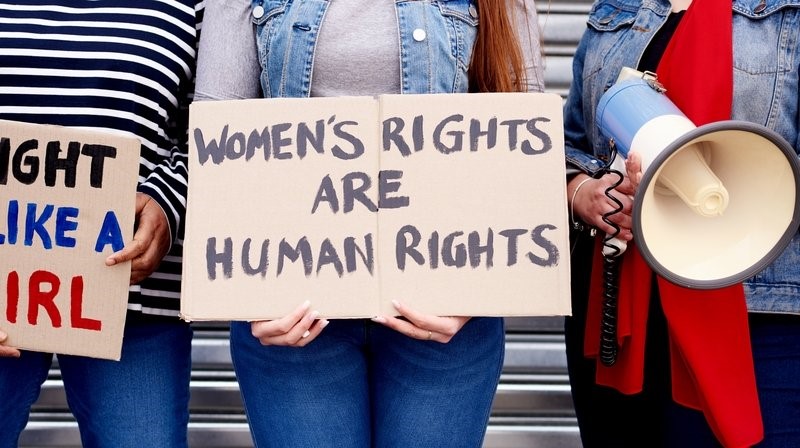Artículo de opinión de Txetxu Ausín @AusinTxetxu, publicado en RTE el 2 de julio de 2019 (enlace)
I don’t like privileges, mine or anyone else. I don’t tolerate violence, aggression, bullying. I don’t like shouting or foul language. I can’t stand that male camaraderie built on mocking women and the different. I’m horrified by prostitution and the trafficking it involves. I don’t want to identify with my role as a family provider (the reason men cry most often is because they can’t support the family).
I’m not a hero or an invulnerable guy. I don’t like to control and dominate. I’m not an individualist. I don’t conceive of the world without the complex web of interdependent relationships and community ties that sustain it. I am not a man-made-to-myself. I am neither a conqueror nor a seducer. I don’t like risky sports. I’m not brave. I don’t want to give up taking care of my family, my partner, my friends. I want to be co-responsible for those caring tasks that are indispensable for the reproduction of social life.
I don’t like ambition or power. I don’t have things clear. I don’t want to be king of the house (or anywhere else; monarchies are anachronisms). I don’t like gyms and I’m not strong nor rough. I don’t like asymmetrical relationships between women and men. And I have female references in my work as philosopher (Eva Feder Kittay, Joan Tronto, Nancy Fraser).
I don’t want to respond to what is considered the male pattern, role or stereotype. Nor do I want to build my identity against women. Because men also have gender, we also construct ourselves socially and culturally on the basis of a patriarchal model of masculinity, a model that privileges men and a certain conception of masculinity that subordinates and discriminates against women. If, as Simone de Beauvoir said, one is not born a woman but becomes one, the same happens with man: we are built according to a series of social expectations that mark our lives from the beginning of our socialisation process. A model of masculinity with which I do not identify and which not only leads to injustice towards women, but also generates burden and pain for men.
So how can we men not be feminists too? Feminism is an emancipatory theory of the human being, of women and men, which recognises our fragility and interdependence and the enormous network of relationships and care that social reproduction allows. It is the invisible work of care that sustains social life. This type of activity is absolutely essential for society because without it there would be neither social organisation, nor economy, nor culture, nor politics («the invisible wealth of care» to quote my colleague María Ángeles Durán).
Feminism is the catalyst of all social claims for its radical defence of equality, freedom and solidarity. Aspirations that benefit everyone, women and men. As Nigerian writer Chimamanda Ngozi Adichie brilliantly puts it, we should all be feminists: «we teach children to be afraid of fear, weakness and vulnerability. We teach them to hide who they really are, because they have to be, as they say in Nigeria, tough men.»
As an example, it is intolerable that more than 1,000 women have been murdered in Spain since 2003 by gender-based violence resulting from the prevailing macho culture and 70% of the murdered women never denounced their aggressors. I write this piece, like many, shocked by the horrible case of Ana Kriegel.
Spanish Vice-President Carmen Calvo recently recalled that gender violence, as defined by the international legal framework, is a consequence of inequality between women and men, an inequality due to a macho conception of the world. That is the origin of the problem and we will have to eradicate those roots of male chauvinism firmly anchored in society in order to eradicate it. All areas of our live should be impregnated with the culture of gender equality.
Moreover, gender equality is not bad for men because it is an opportunity to liberate ourselves. Men live seven years less on average than women which has to do with the mandate of hegemonic masculinity. In Spain, for example, there are two million widows, but only 200,000 widowers.
There’s only one way to be a gentleman and that’s by being a feminist
Feminism also frees men from the gender mandates imposed on them by patriarchy and feminism enables us to realise that we are the bearers of a discourse and practices that we do not want. This is the nub of a beautiful statement by the British actor Bill Nighy. «Precisely that is the essence of what I call a gentleman. What’s more, there’s only one way to be a gentleman, and that’s by being a feminist. The rest is a contradiction in terms.
«There is no such thing as a male chauvinist gentleman, it is not possible. Gender equality is not an option, but the only desirable version of society. A world without equality of sexes is a medieval world. Throughout history men have tried to dominate women to the point of frightening them and exploiting them. And, of course, that’s not exactly chivalrous; it’s criminal as well as a serious mistake».



